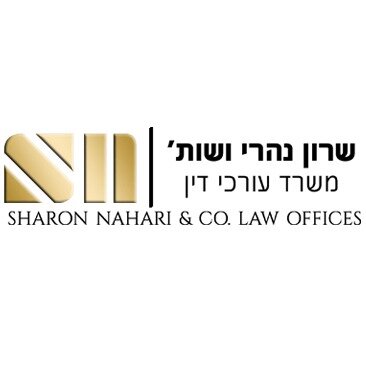Best Arrests & Searches Lawyers in Israel
Share your needs with us, get contacted by law firms.
Free. Takes 2 min.
Or refine your search by selecting a city:
List of the best lawyers in Israel
About Arrests & Searches Law in Israel
Arrests & Searches law in Israel is primarily governed by the Israeli Code of Criminal Procedure (Arrest and Search) Ordinance (1969) along with subsequent amendments and regulations. These laws seek to balance state security and citizens' rights, defining when and how law enforcement officials can conduct arrests and searches. The legal framework in Israel emphasizes the need for probable cause and judicial oversight to safeguard personal freedoms while allowing the authorities to maintain law and order.
Why You May Need a Lawyer
There are several circumstances where legal assistance can be crucial in matters of arrests and searches. If you've been arrested, you might face detention, interrogation, or charges that require a robust legal defense to ensure your rights are upheld. You might need a lawyer if you believe you were subject to an unlawful search or if the evidence against you was obtained unlawfully. Legal professionals can provide guidance, represent you in court, and help navigate the complexities of the legal system, aiming to protect your freedom and achieve a fair outcome.
Local Laws Overview
In Israel, key aspects of arrests and searches laws include:
- Probable Cause & Warrants: Police officers typically need probable cause to make an arrest or conduct a search. Search warrants must be judicially sanctioned, specifying the premises and items sought.
- Arrest Procedure: Upon arrest, individuals must be informed of the reason and their right to consult an attorney. Generally, an arrest without a warrant is allowed only in specific situations such as a crime being committed in the officer's presence.
- Detention without Charge: Detainees must be brought before a judge within 24 hours. Specific cases allow for longer detentions, especially those involving security or terror-related matters.
- Exclusion of Evidence: Evidence obtained through illegal searches may be inadmissible in court, reinforcing the protection against unreasonable searches and seizures.
Frequently Asked Questions
1. Can the police arrest me without a warrant in Israel?
Yes, but only under certain conditions such as witnessing a crime being committed. Otherwise, a warrant is generally required.
2. What are my rights upon arrest?
Upon arrest, you have the right to know the charges against you, you must be informed of your right to silence, and you have the right to consult with a lawyer.
3. How long can I be detained without being charged?
Typically, you must be brought before a judge within 24 hours of arrest. In specific cases involving national security, the detention period may vary.
4. Do police need a warrant to search my home?
Generally, yes, a warrant is needed to search a private residence unless exceptions apply, such as exigent circumstances.
5. What happens if evidence is obtained illegally?
Illegally obtained evidence may be excluded from court proceedings, potentially affecting the outcome of a trial.
6. Can I refuse a search of my person or vehicle?
If police have a reasonable suspicion or jurisdictional authority, refusal may not be an option. It's best to comply and consult a lawyer afterward.
7. What is a "reasonable suspicion" in the context of a search?
Reasonable suspicion is a legal standard based on specific and articulable facts, suggesting a law has been broken.
8. Are there special considerations for minors during arrest?
Yes, minors have additional protections, including notification of legal guardians and the presence of a responsible adult during questioning.
9. What should I do if I believe my rights have been violated?
Consult a lawyer immediately to discuss potential legal actions, such as challenging the admissibility of evidence or filing complaints against law enforcement.
10. Can I represent myself in case of an arrest?
While you have the right to self-representation, it's generally advisable to seek legal representation to ensure proper defense and application of legal knowledge.
Additional Resources
Those seeking advice on arrests and searches in Israel can access resources such as:
- The Office of the Public Defender for access to legal aid and public defense services.
- The Israel Bar Association for lists of qualified lawyers who can provide assistance.
- Human rights organizations such as the Association for Civil Rights in Israel (ACRI) for educational resources and legal advocacy.
- Legal clinics at Israeli universities offering free or low-cost legal support.
Next Steps
If you require legal assistance regarding arrests or searches, here are steps to consider:
- Contact a lawyer specialized in criminal law to discuss your situation confidentially.
- Gather and document all relevant information and interactions regarding the case, including arrest records, search warrants, and any correspondence with law enforcement.
- Consider reaching out to legal aid services if you cannot afford a private lawyer.
- Stay informed of your rights and legal obligations, ensuring compliance while protecting yourself legally.
Lawzana helps you find the best lawyers and law firms in Israel through a curated and pre-screened list of qualified legal professionals. Our platform offers rankings and detailed profiles of attorneys and law firms, allowing you to compare based on practice areas, including Arrests & Searches, experience, and client feedback.
Each profile includes a description of the firm's areas of practice, client reviews, team members and partners, year of establishment, spoken languages, office locations, contact information, social media presence, and any published articles or resources. Most firms on our platform speak English and are experienced in both local and international legal matters.
Get a quote from top-rated law firms in Israel — quickly, securely, and without unnecessary hassle.
Disclaimer:
The information provided on this page is for general informational purposes only and does not constitute legal advice. While we strive to ensure the accuracy and relevance of the content, legal information may change over time, and interpretations of the law can vary. You should always consult with a qualified legal professional for advice specific to your situation.
We disclaim all liability for actions taken or not taken based on the content of this page. If you believe any information is incorrect or outdated, please contact us, and we will review and update it where appropriate.
Browse arrests & searches law firms by city in Israel
Refine your search by selecting a city.













